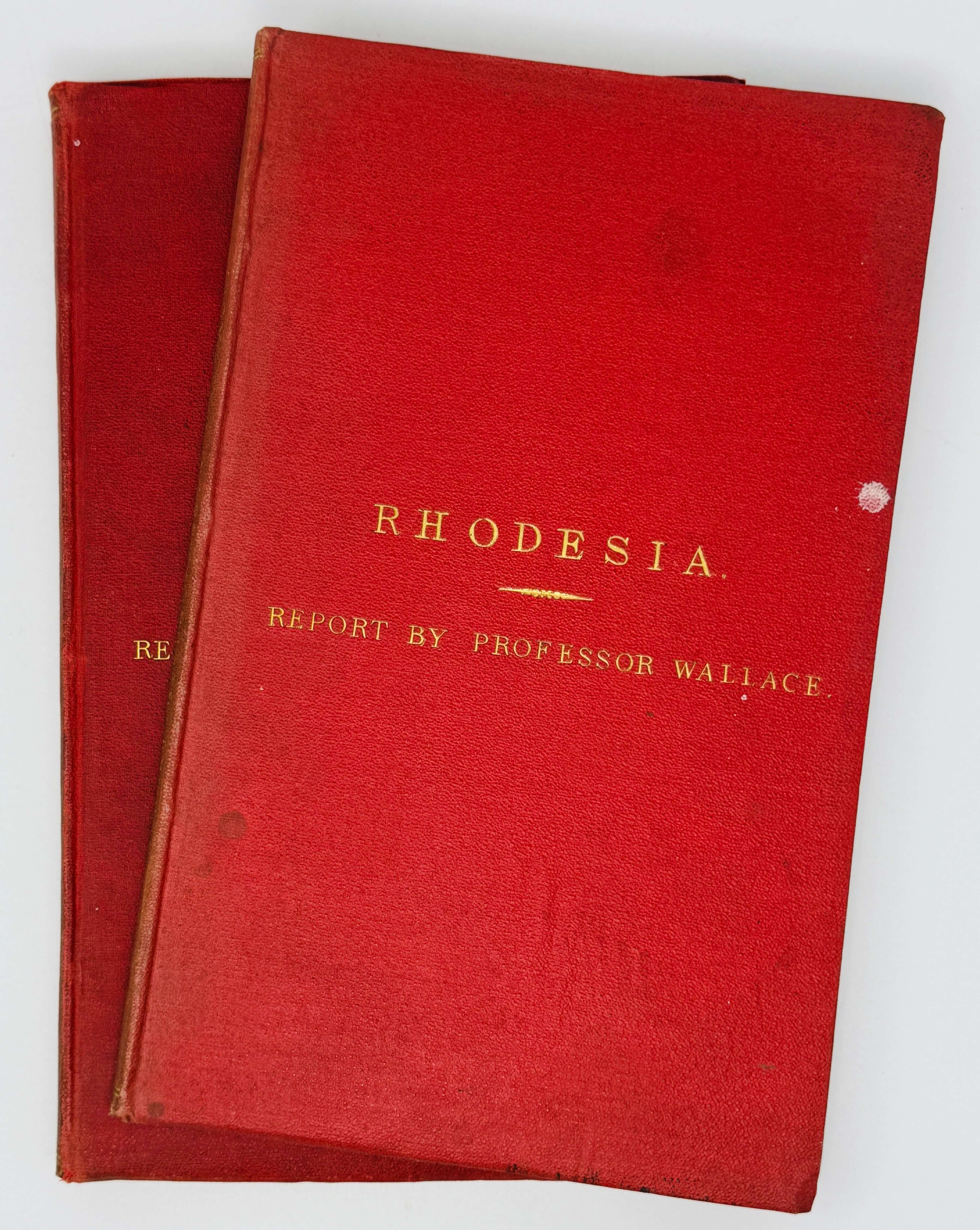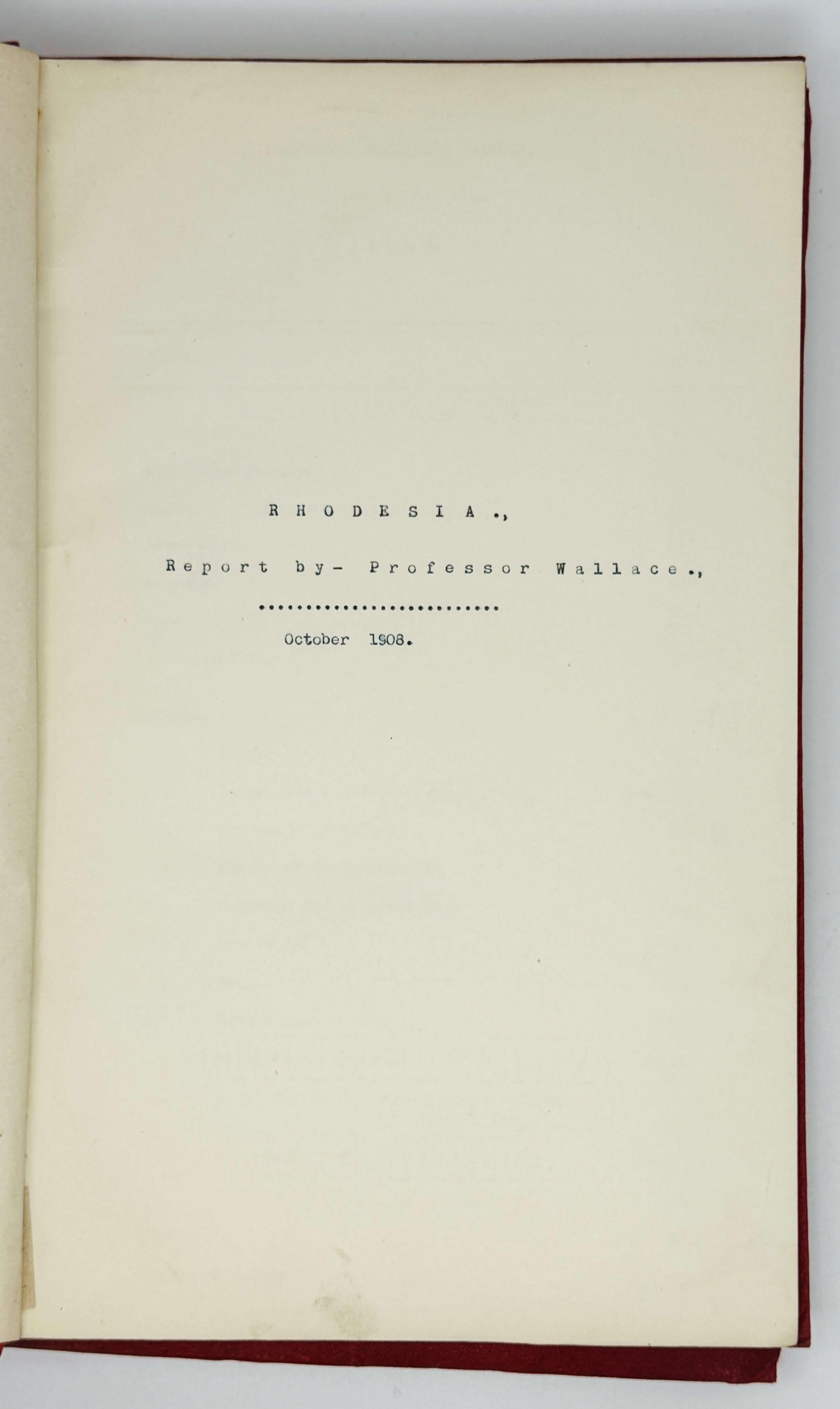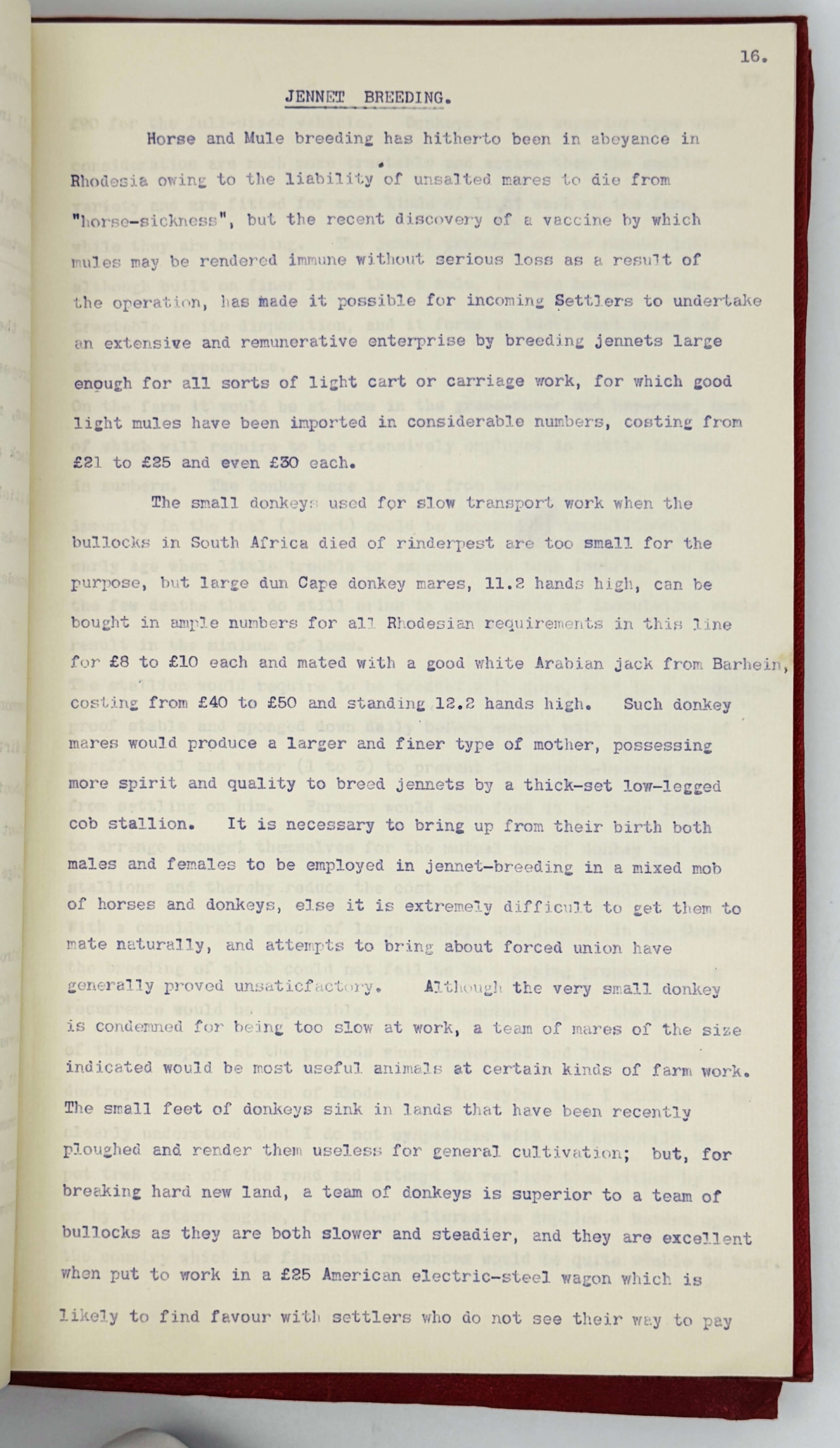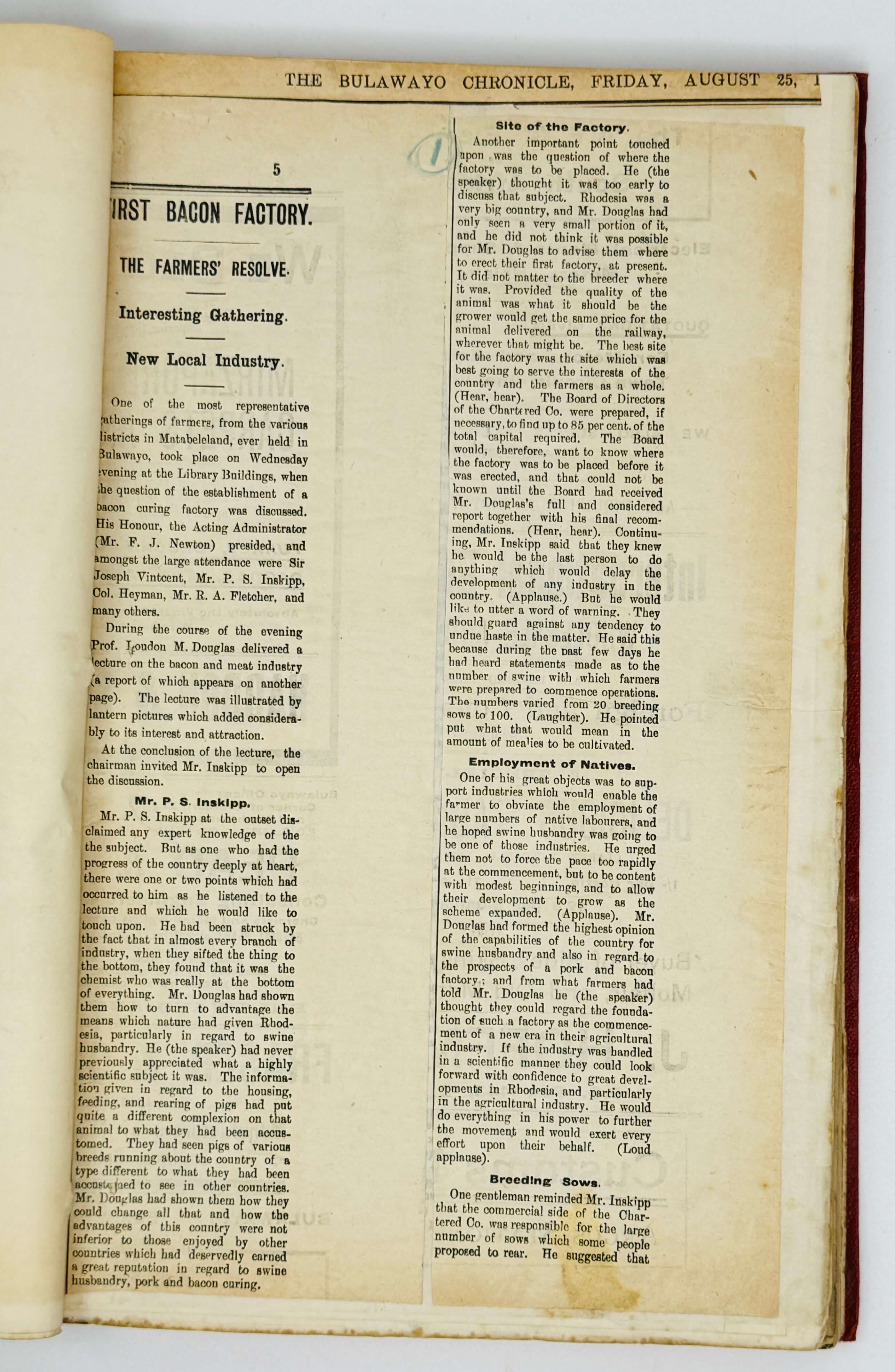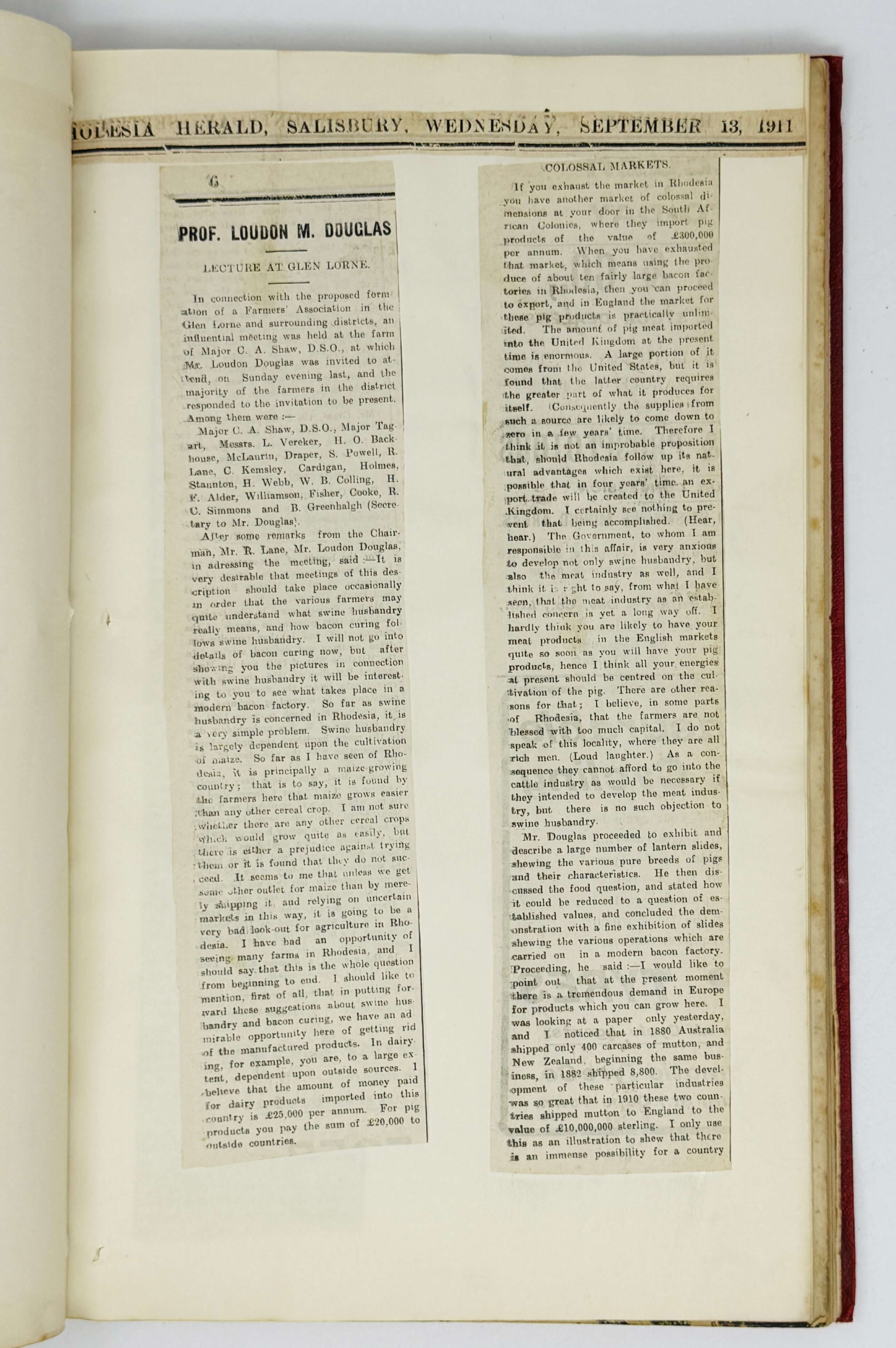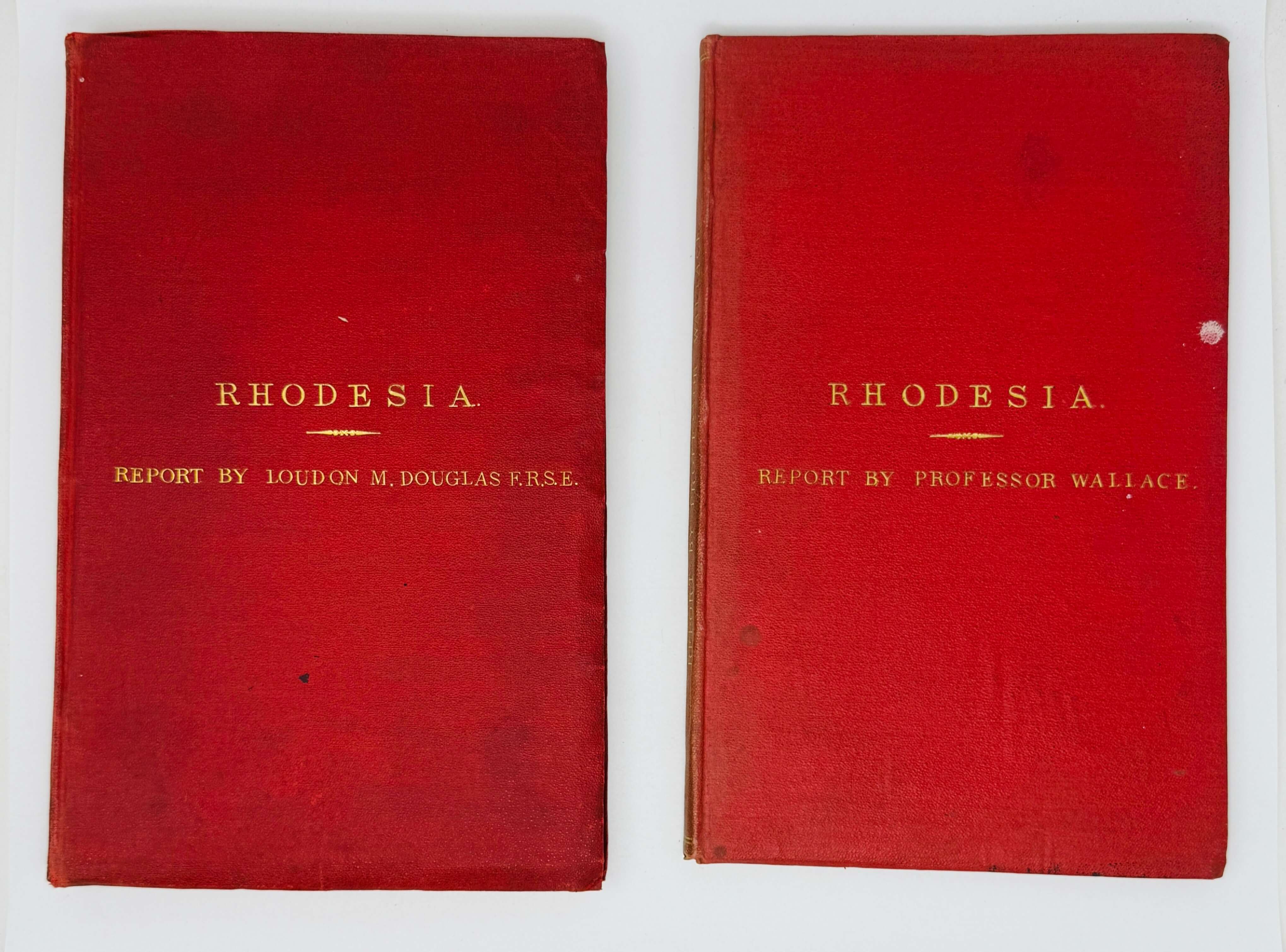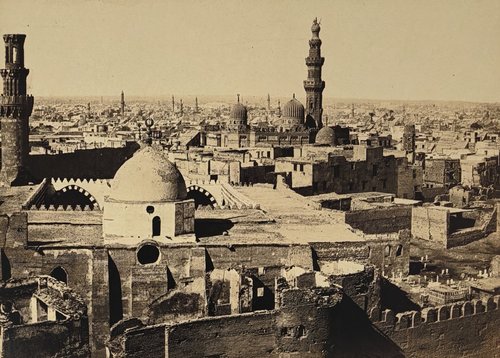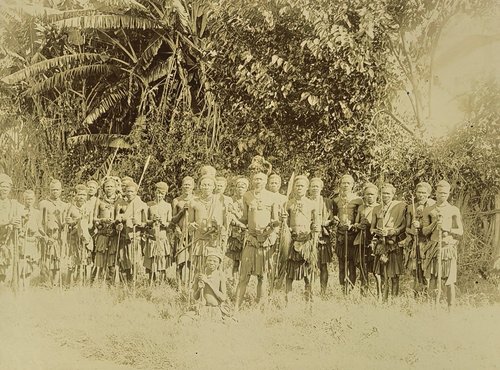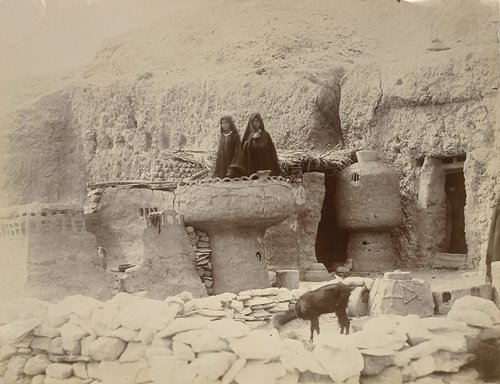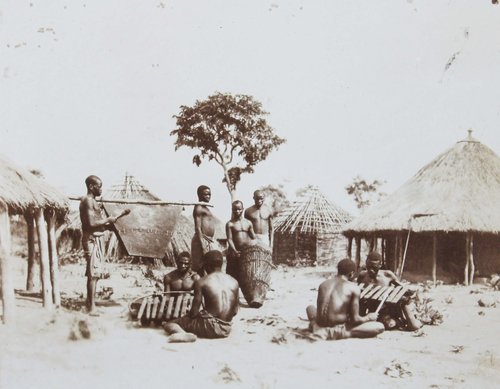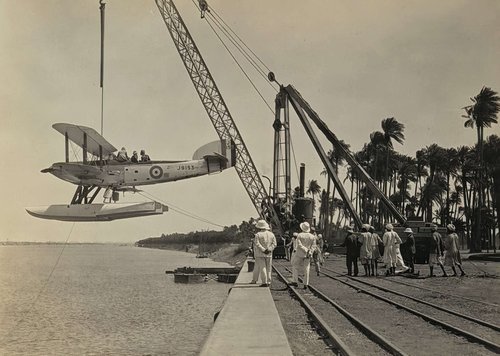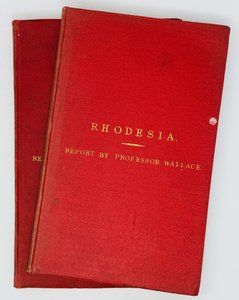
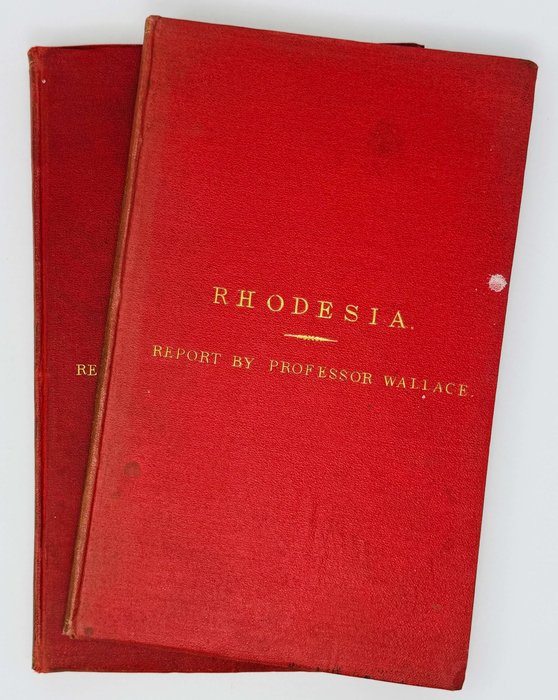
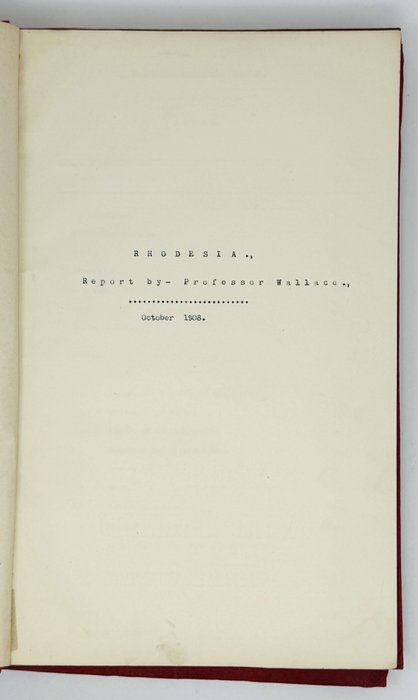
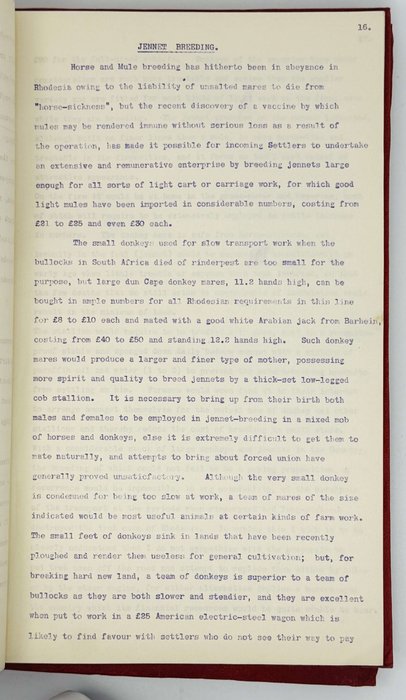
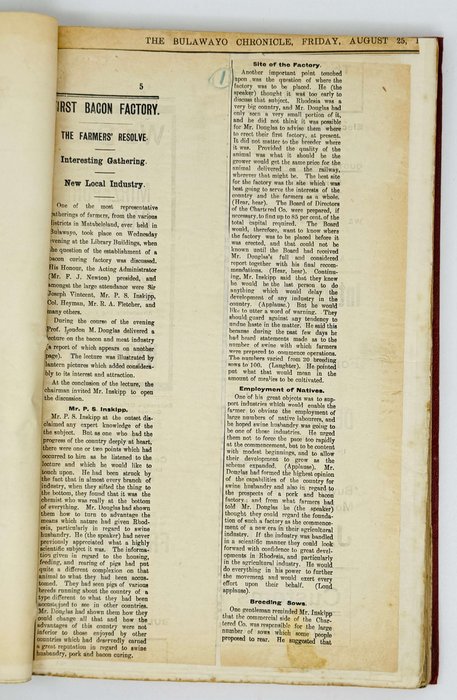
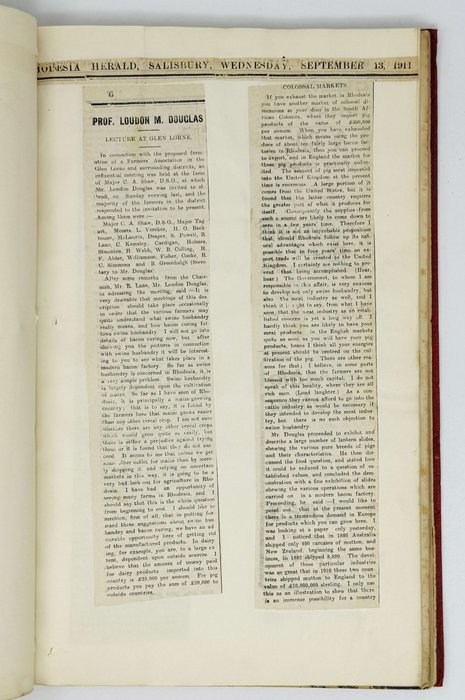
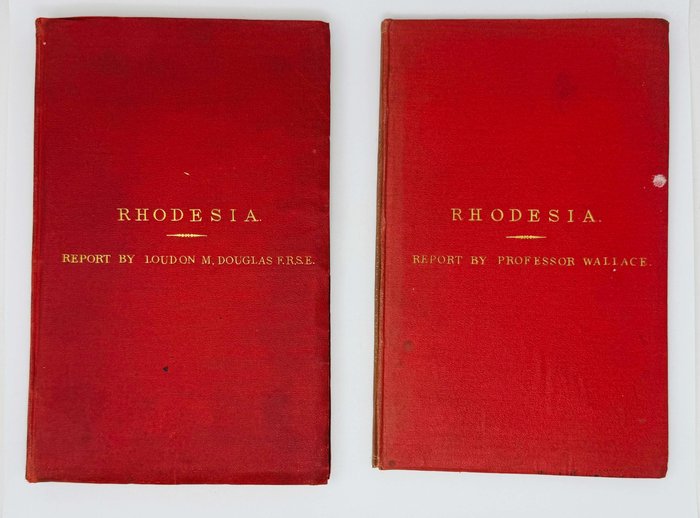
#O51
Ca. 1908-1911
Two Folio bound volumes of typewritten text (ca. 33x21 cm). Report by Wallace: [1], 3, 70, 4 leaves, period pencil corrections in text. Report by Douglas: [1], 100, [1], 43, [8], 30 leaves, with fourteen leaves of related newspaper clippings and ephemera bound in; period ink corrections in text; period ink note “London M. Douglas (personal copy)” on the first free endpaper. Two uniform red cloth bindings with gilt lettered titles on the front boards and spines. Collection of the typewritten articles: 10, 10, 10, 8, 9, 11, 9 = 67 leaves, put together with original staples. The articles numbered from 1 to VIII (article VII is apparently missing). Bindings of the reports slightly rubbed, with corners bumped, the leaves of the articles with minor creases, but overall a very good collection.
Interesting collection of original reports and essays on the perspectives of farming and agriculture in Rhodesia, compiled on special request of the British South Africa Company. The first report was made by Robert Wallace (1853-1939), professor of agriculture and rural economy in the University of Edinburgh, who toured Southern Rhodesia on 29 June – 2 September 1908. His main findings were that it was “essentially a live stock country,” and for future it was necessary to built a land bank, a hospital and fever camps, to introduce breeding programs for cattle, horses and pigs and to overhaul veterinary regulations. The report presents the statistics for the sheep and camel population and it seems that the “future of Rhodesia as a tame ostrich country still hangs in the balance.” One of the main problems for the industry is the native labour “not only of its irregularity, unreliability and inferior quality, but its short supply and its costliness on account of the competition of the mines.”
The second report by London M. Douglas, “Technical Advisor on Animal Industries” was made after a trip to Rhodesia in July-September 1911, undertaken with the goal to evaluate the present state and possible development of the swine, meat, and dairy industries, together with the building of a bacon curing plant. The volume, from Douglas’s personal collection, includes the report together with the detailed travel diary and related Rhodesia newspaper clippings and ephemera mounted on separate leaves. Although agriculture was progressing, Douglas reported that an agricultural college was sorely needed, together with an ice and creamery plant and a bacon factory.
The collection of articles titled “The Progress of Rhodesia” consists of 8 essays, dedicated to the country’s history, geography, population, agricultural produce, forestry, tobacco, live stock, fruit and vegetables, the author also gives recommendations to prospective farmers. The articles were most probably published in a newspaper titled “Country Life” (or in a column of the same name).
“British South Africa Company (BSAC, BSACO, or BSA Company), mercantile company based in London that was incorporated in October 1889 under a royal charter at the instigation of Cecil Rhodes, with the object of acquiring and exercising commercial and administrative rights in south-central Africa. The charter was initially granted for 25 years, and it was extended for a 10-year period in 1915. <…> After 1897 the BSAC administered the two Rhodesia's, encouraging the immigration of white settlers with exaggerated tales of gold deposits. When these claims were proved to be overstated, settlers were encouraged as farmers. Company rule ended in Southern Rhodesia in 1923, when the white settlers were granted responsible government, and in Northern Rhodesia in 1924, when the British Colonial Office assumed control” (Encyclopaedia Britannica).

